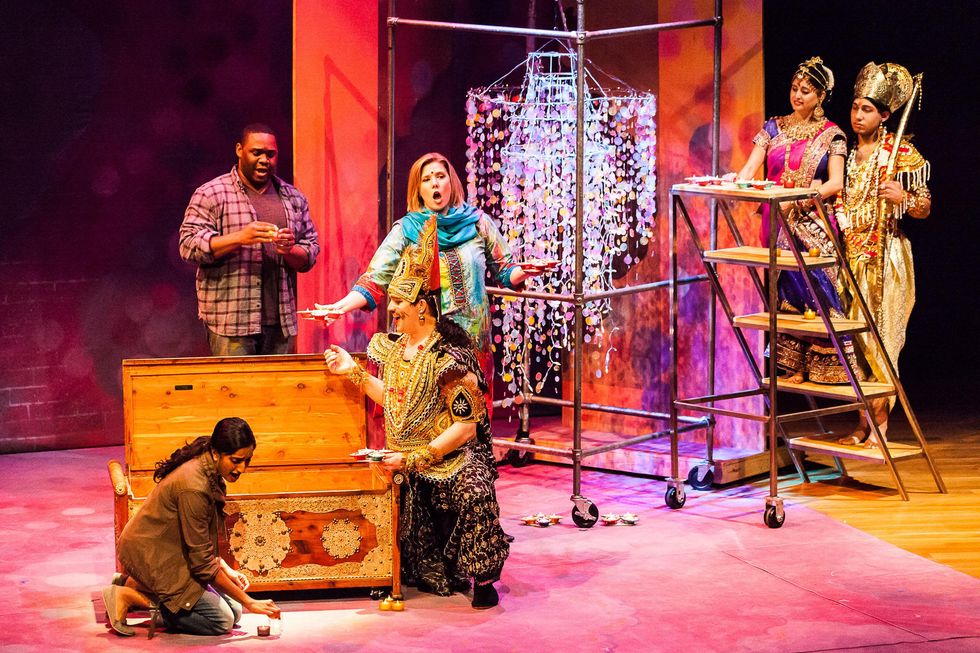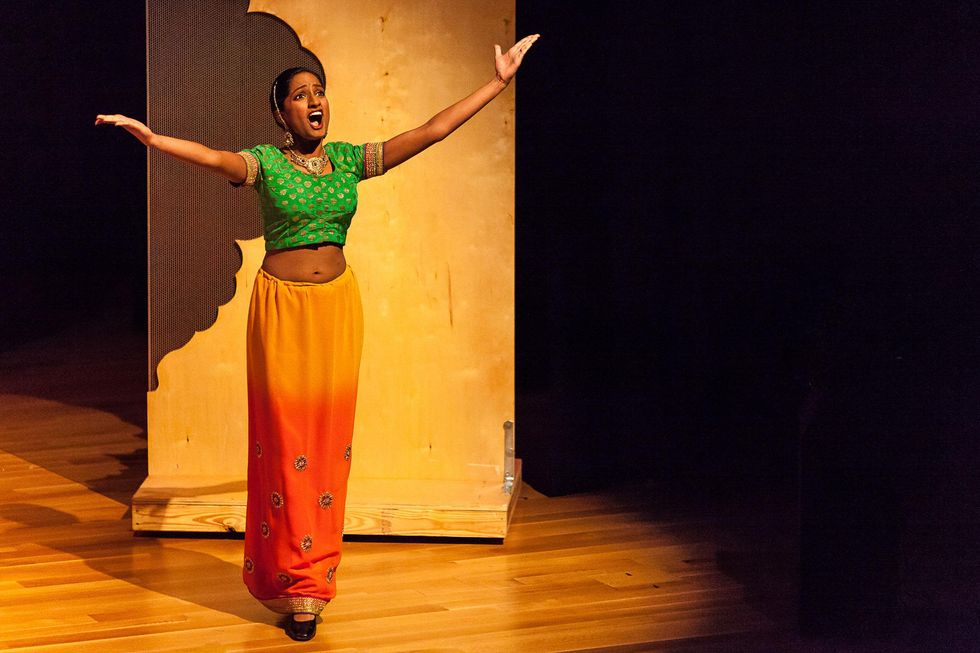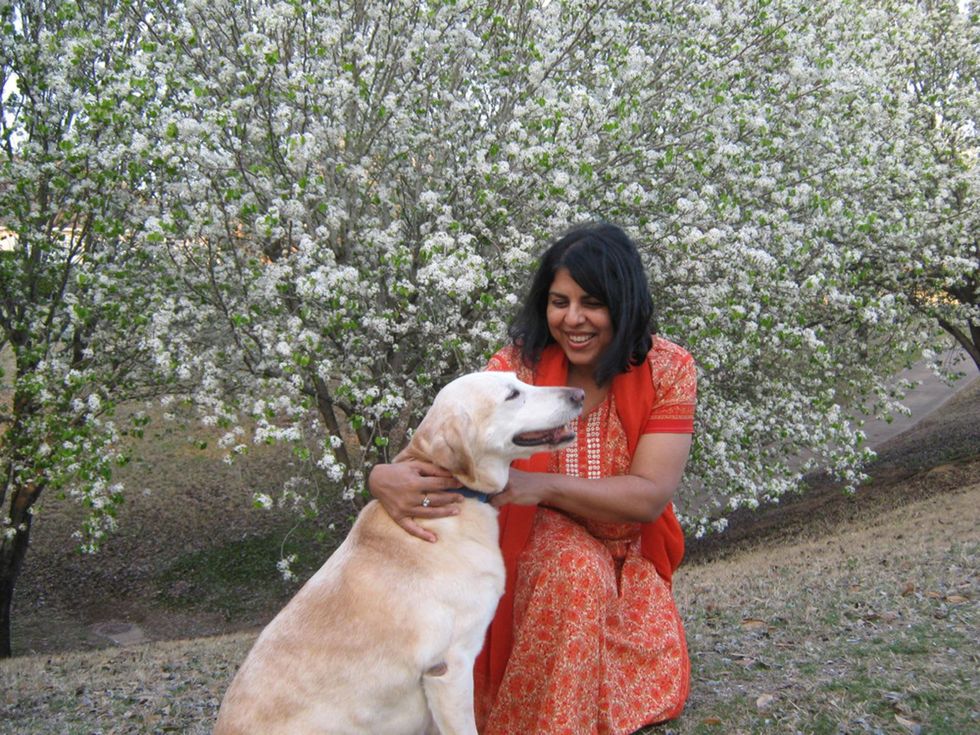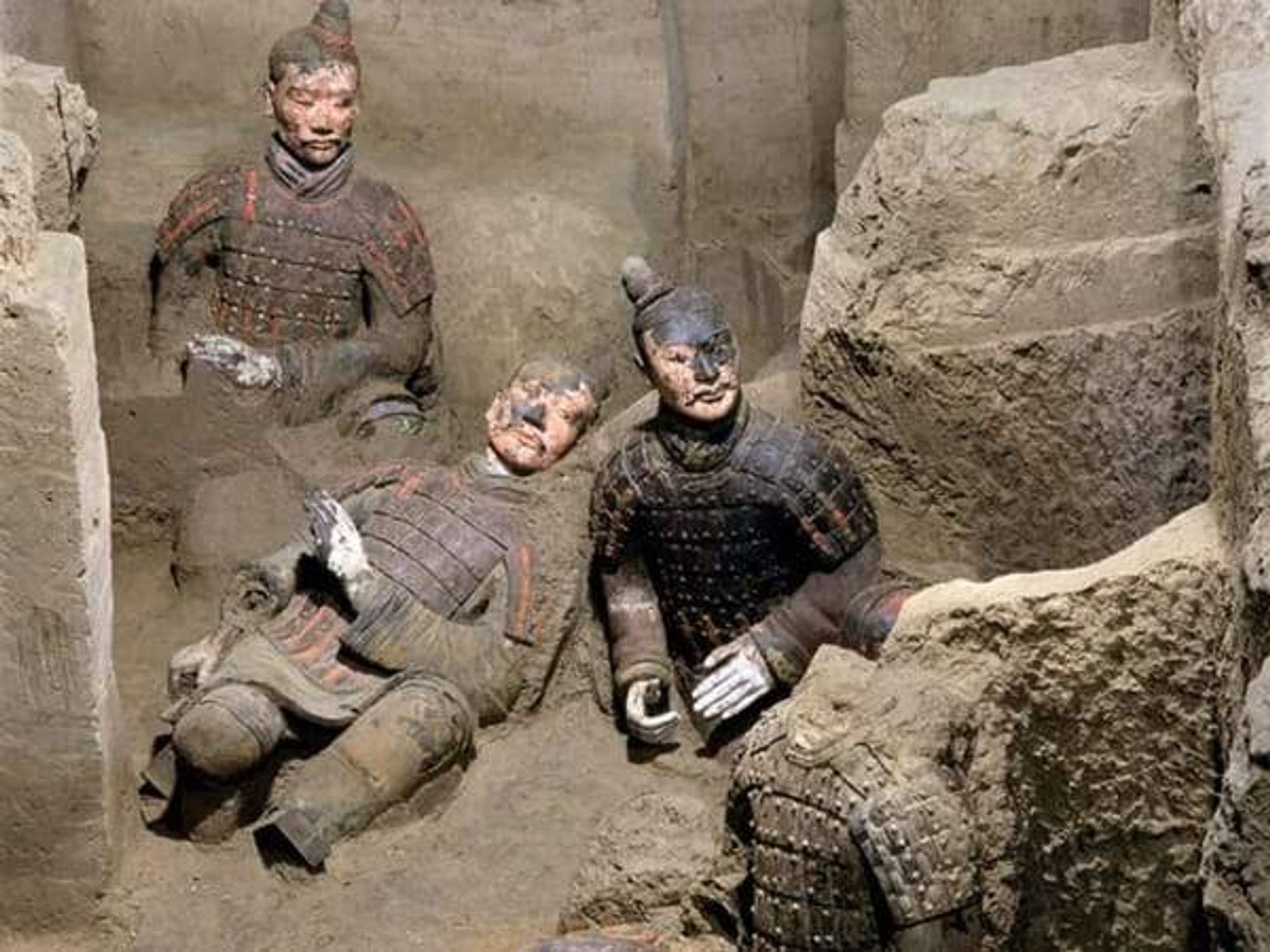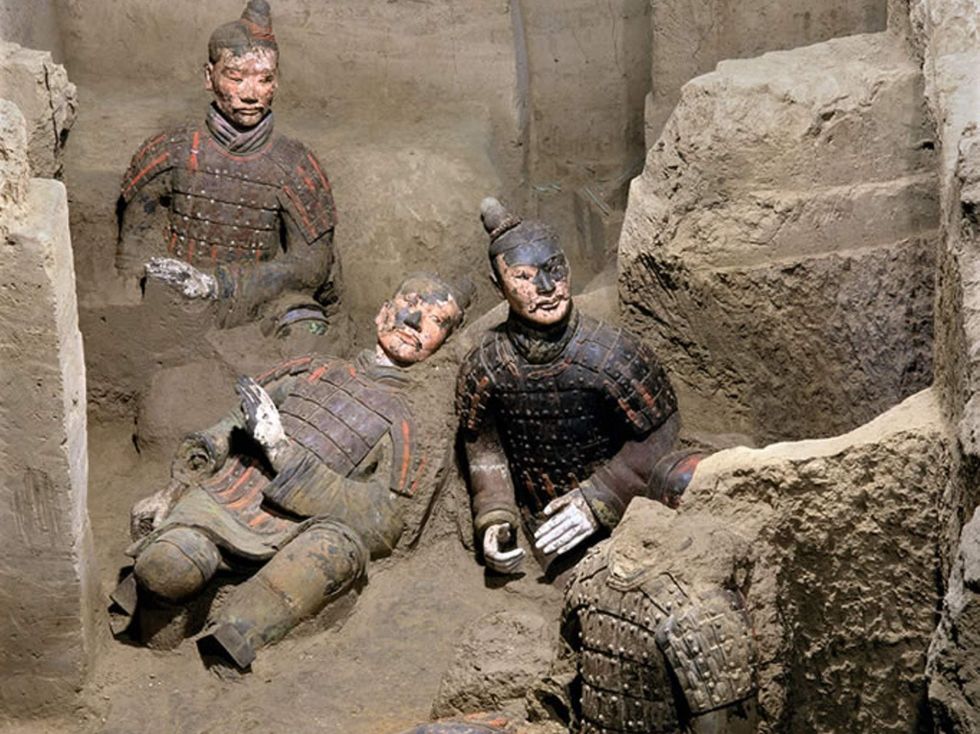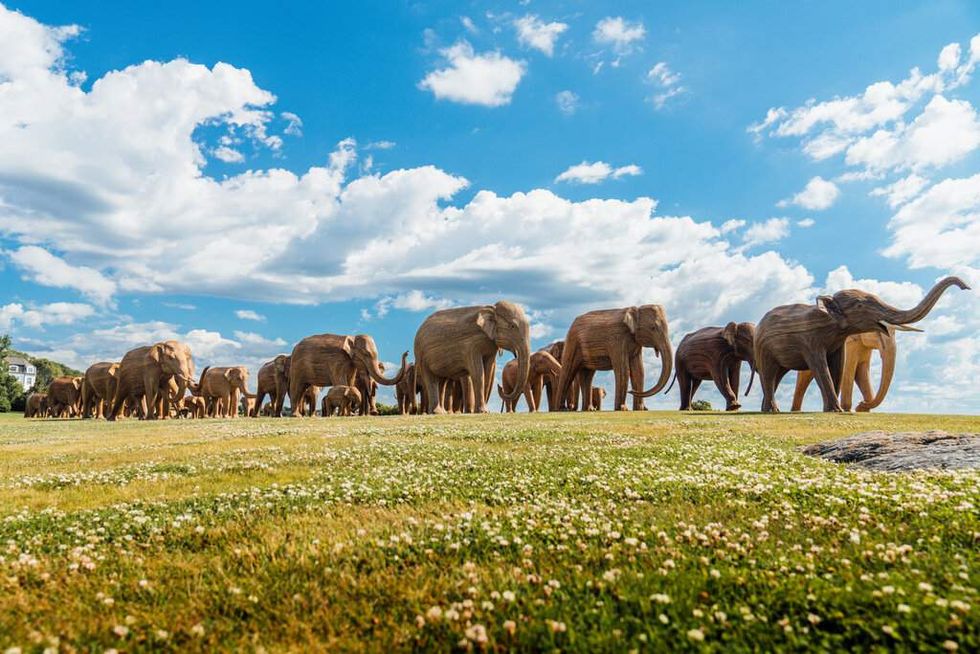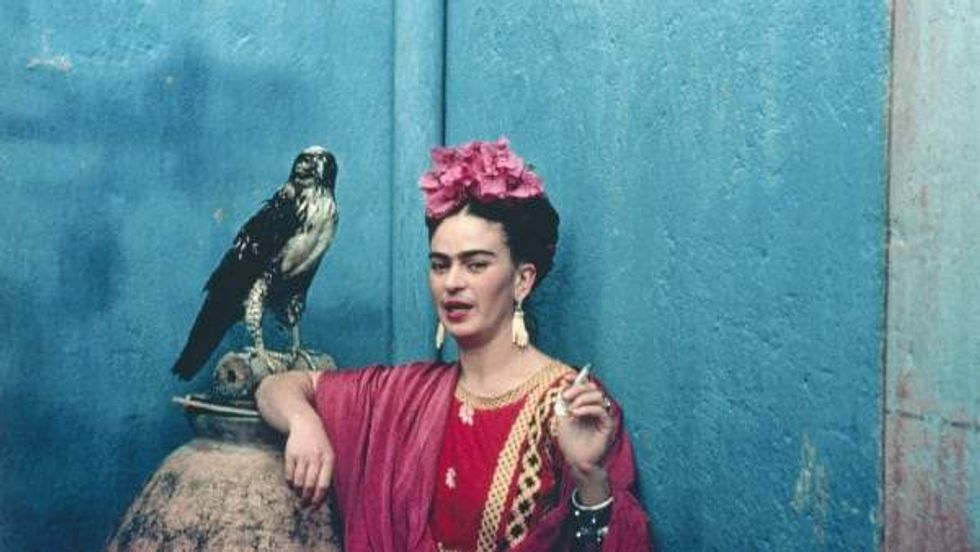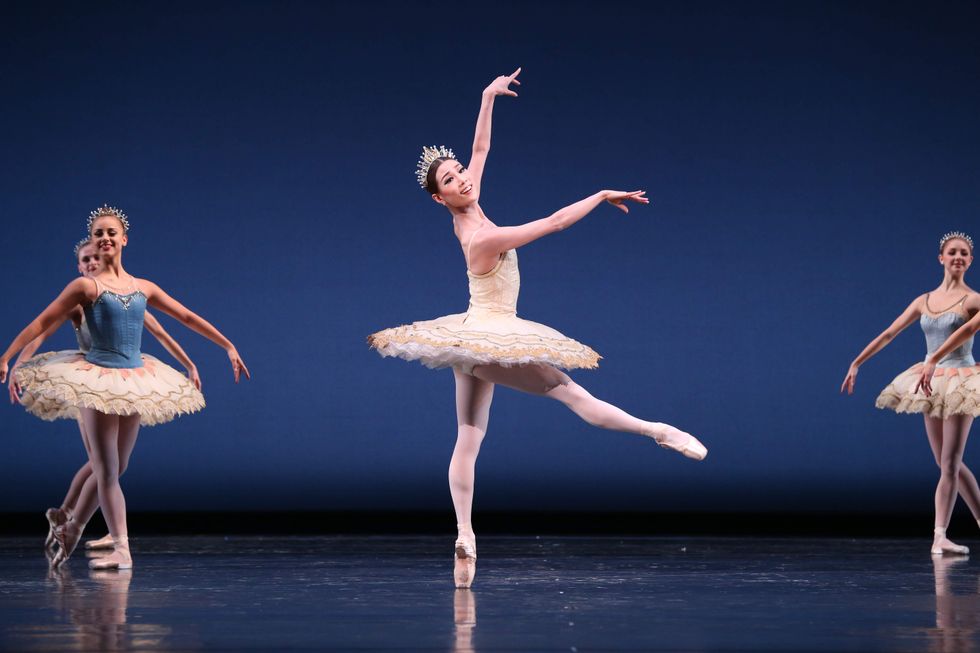Talk Opera To Me
An opera with real Houston power: Award-winning author and HGO bring city's immigrant truths to life
A young, brilliant Indian woman falls in love with an American man, moves to Houston and falls almost equally in love with the city. She seems to embrace her new culture and life whole-heartedly until the birth of her daughter, when she begins to realize that maybe, for her child’s sake, she must make enough room in her whole heart to hold both her old and new culture.
This is a real life dilemma that many immigrants face, but could it also be the dramatic fodder for opera?
According to award-winning novelist Chitra Divakaruni and Houston Grand Opera, it certainly can. For four years, HGO has been using the chamber opera form to honor and reflect the many cultures that have become woven together within Houston. The eighth and final work of this East + West series of commissioned operas, River of Light with libretto by Divakaruni and music by Jack Perla, will be performed this Saturday and Sunday at the Asia Society Texas Center.
"We’re used to words being supreme. But it’s also freeing because now I don’t have to make my words do everything.”
HGO contacted Divakaruni two years ago to see if she would be interested in writing the libretto for the final East + West opera, with a focus on the Indian experience in Houston. Divakaruni told me during a recent interview that though she had never written for opera before, she was immediately intrigued with the idea because the question of how “we carry our culture forward while we’re being American” is an issue she has explored in many of her fiction works.
River of Light is structured around significant holidays in the first few years of the marriage of successful career woman Meera and her artist husband Burt. We watch Meera happily celebrate Christmas and the Fourth of July, but after the birth of her daughter, when she wishes to celebrate Diwali and all the Houston stores are filled with Halloween decorations, she has a crisis of clashing cultures.
Meera fears she has given up too much of her old life for this new one.
Finding the Right Words
While many of the themes in River of Light are ones Divakaruni has touched on before, putting those issues in opera form was certainly a new experience, as was the whole collaborative process. Divakaruni kept in constant contact with composer Perla and director E. Loren Meeker while she wrote the individual scenes. While Divakaruni the fiction writer could sculpt Meera’s whole story, Divakaruni the poet worked on making changes to each line with Perla’s input, to find the exact words Perla could best set to music.
While several of her novels and stories have been adapted for stage, screen, and even as dance, these adaptations were always after the fact when the stories had already been finished.
“It was different because I already had the book. No one was changing the book,” Divakaruni explained. “But here the libretto I had written was being changed. I had to be mature about it and not say things like: My version’s better than yours.” Yet the process taught her a very rewarding lesson.
“That’s what I learned, that the words don’t have to do everything in opera. The words are just one element, the singing, the movement on the stage, the expressions on the faces, the use of puppets and dancers in this case, all of those things create the ultimate artistic experience. And that’s kind of a humbling experience for a writer.
"We’re used to words being supreme. But it’s also freeing because now I don’t have to make my words do everything.”
An Opera for the New Generation
While Divakaruni has been chronicling the immigrant experience in many of her works, she says Meera story is a look at the next generation.
River of Light is very much grounded in the rhythm and idiosyncrasies of life in Houston, the rodeo, downtown tunnels, the art car parade.
“I took little things I’ve observed in the younger generation,” she said. “Meera belongs to the next generation from me. She’s not one of those early immigrates who came here and really clung to each other. She comes from a much more empowered position. She had a great job. . .When she comes she feels no need to connect to the Indian community. She’s really a much more contemporary, global version of the immigrant.”
That position of confidence in her shiny new life, is what also leads to great inner conflict when Meera wants to buy lanterns to celebrate Diwali in Houston, but only sees pumpkins and witch masks everywhere she goes. Some of the funniest moments in River of Light, and there’s quite a bit of humor in the piece, arises from the fact that Meera’s existential crisis is triggered by her being a bad shopper who never ventures outside the Loop.
Houston and Beyond
River of Light is very much grounded in the rhythm and idiosyncrasies of life in Houston, the rodeo, downtown tunnels, the art car parade, and operas about sports, but Divakaruni also sees many universal elements in the story.
“Some parts are very Houstonian, but if you look at the whole experience, it’s very universal,” she said. “It could happen in any city in American, any country in the world where someone comes from a different culture, marries into a different culture, which is an act of great adventure. . .
"You embrace those customs and it’s exciting, but there comes a moment when you say: Oh the culture I left behind was very important and I have to reclaim it because I’m going to have a kid. I’m the only one who can pass that culture on.”
The final scene of River of Light. From left, soprano Maya Kherani (Meera), bass-baritone Michael Sumuel (Burton), tenor Samuel Levine (Ravan Man), mezzo-soprano Alissa Anderson (Cousin Renu/Woman), Kusum Sharma (Sita) and dancer Aaron Green (Ram).
